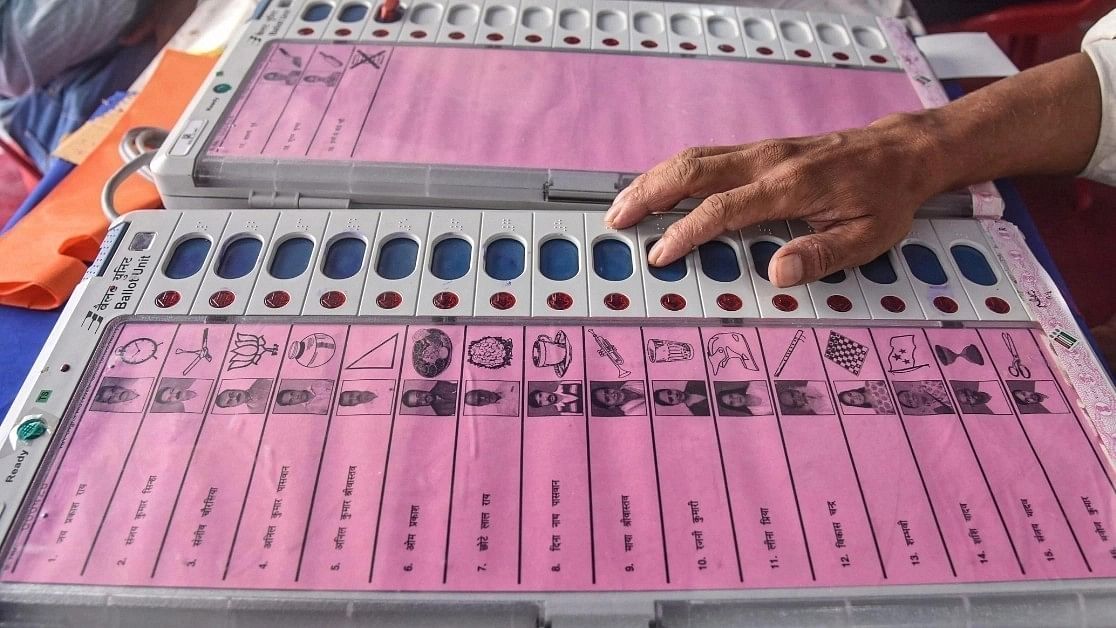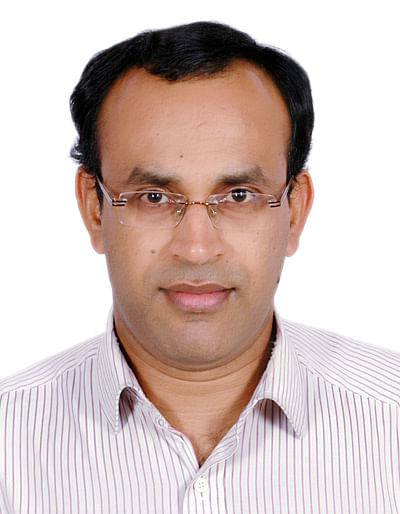
Representative image of a person casting a vote.
Credit: PTI Photo
New Delhi: About 61 per cent urban local bodies in 15 major states including Karnataka witnessed delayed council elections, says a latest survey.
Article 243U, introduced by the 74th Constitution Amendment Act (CAA), mandates the completion of elections before the expiry of the municipal council’s term.
Yet, in several states, council elections are not held before the expiry of the council term, including in several major cities such as Bengaluru, Mumbai, and Visakhapatnam, says Annual Survey of India’s City-Systems (ASICS).
The survey was done by a Bengaluru based NGO Janaagraha. In Karnataka’s seven municipal corporations, despite elections being held, there was a delay in constitution of councils on an average by 11 months. In Karnataka more than 70 per cent of urban local bodies have no elected bodies, said the survey report.
The report said,"Articles 243ZA and 243K of the 74th CAA mandate that the superintendence, direction, and control of all procedures of election to the municipalities shall be vested in the State Election Commission (SEC). However only 11 out of 35 states/Union Territories have empowered SECs with ward delimitation. In the remaining 24 states, this function is vested with the state government. Weak SECs contribute to delays in council elections."
Conduct timely elections and empower State Election Commissions over ward delimitation and reservations, the survey report recommended.
"Ultimately, it is state governments that would need to take the lead and implement robust state urban transformation agendas as place-based convergence programmes which surmount the current fragmented governance and accountability in our cities," Srikanth Viswanathan, Chief Executive Officer, Janaagraha said.
On decentralised participatory governance, the NGO emphasised on strengthening urban local bodies and facilitating citizen participation through the amendment and implementation of the 74th CAA.
The survey said that the percentage of women councillors in India’s urban local bodies to be a healthy 46 per cent, with 17 states having legislated for 50 per cent women’s reservation, well over the constitutional minimum of 33 per cent.
Nineteen out of 21 capital cities which had active councils and data available, have, in fact, exceeded their state mandates, with cities like Patna, Shimla, Ranchi, and Bhubaneswar going over 60 per cent.
“Decentralised participatory democracy will play a pivotal role in addressing 21st century human development challenges. Mayors and councillors who are our elected representatives at the “first-mile” of governance, have a huge role to play," V R Vachana, Head of Municipal Law and Policy, Janaagraha said.
The NGO suggested that enable fast-urbanising villages with urban planning, infrastructure and financing, design incentives for transition thoughtfully, closely involve panchayati raj and rural development ministries/departments at the union and state levels.
India urgently needs a metropolitan governance paradigm; districts need to be leveraged for rural-urban convergence and coordinated planning, and governance of emerging and small cities, the survey report recommended.
